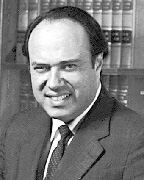A recent article in the Boston Globe was entitled "Calculating the Cost of Tax Breaks." Todd Wallack of the Globe wrote the column that quoted Noah Berger, the president of the Massachusetts Budget and Policy Center, who took the position that Massachusetts "tax credits need to be analyzed like any other state spending."
I would agree that not only should Massachusetts tax credits be analyzed, but also federal tax credits should be analyzed.
The current fiscal crisis is causing a review of all tax credits including the Federal Historic Tax Credit (the HTC). The analysis of the HTC shows that it has been extremely effective and continues to be necessary.
The HTC has been important to the entire country including Greater Boston. According to the National Trust for Historic Preservation, there are 73 Federal Historic Tax Credits in Greater Boston that have received Part 3 certification from the National Park Service between 2001 and 2011. The Part 3 certification means that the completed rehabilitation is designated a "certified rehabilitation" by the U.S. Department of the Interior. The Part 3 certification is necessary for the HTC.
These projects have generated total development expenditures of $836,340,372.00 and have accounted for 9,538 construction and permanent jobs, according to the National Trust for Historic Preservation.
It is deeply disturbing to me and others who work in the area of multi-family housing that such an important program could be jeopardized by members of Congress who have no real knowledge of the importance of the Federal Historic Tax Credit.
Saul Feldman is a real estate attorney with Feldman & Feldman, P.C., Boston, Mass.
Tags:









